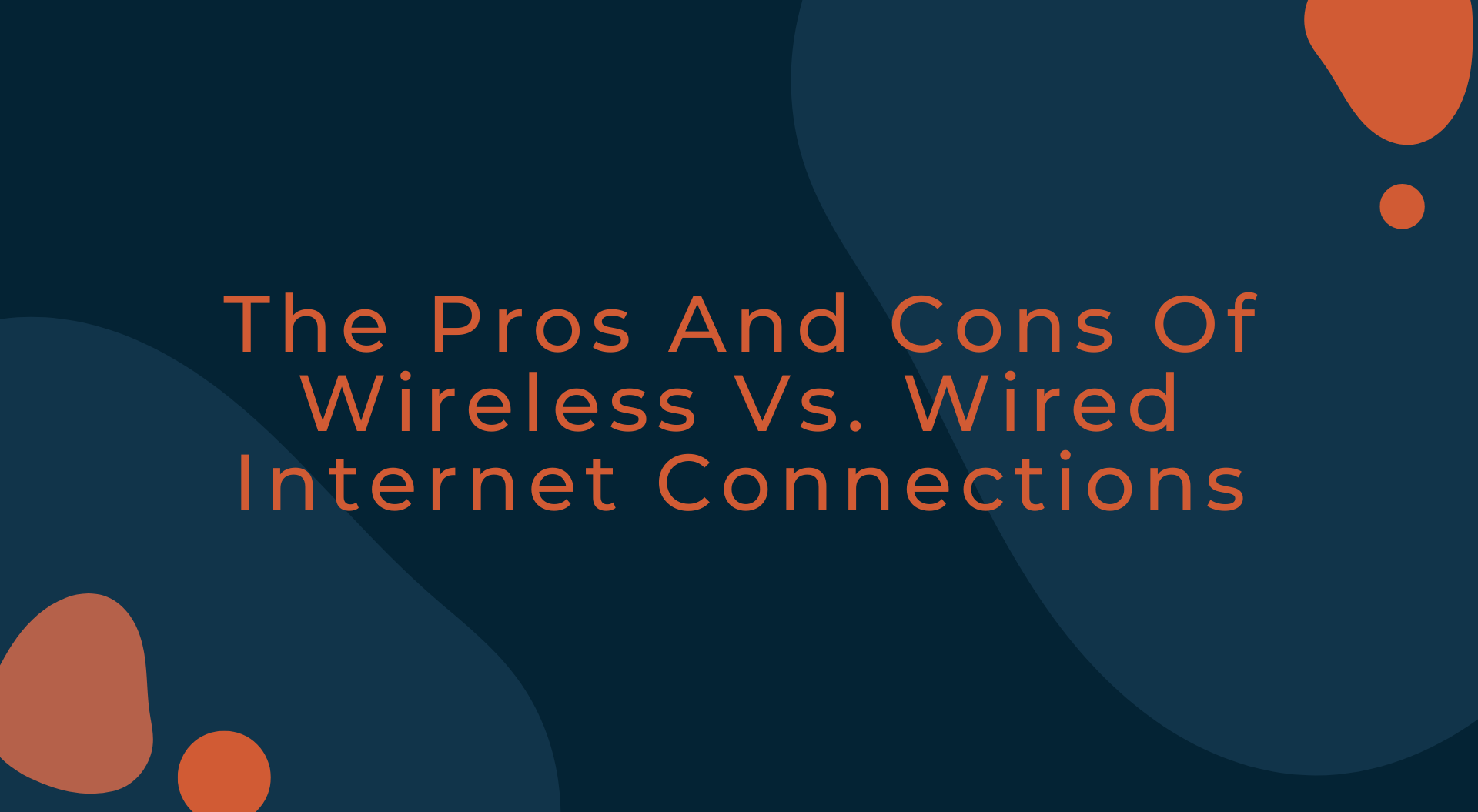
The Pros And Cons Of Wireless Vs. Wired Internet Connections
The internet is an essential part of modern life and the way we access it has come a long way since dial-up connections. Now, there are two main options when it comes to connecting to the web - wireless or wired. Each has its own advantages and disadvantages, so it’s important to weigh up your options before deciding which connection type is right for you.
In this article, we take a look at the pros and cons of both wireless and wired internet connections so that you can make an informed choice about which one will suit your needs best.
Why Do You Use Wireless And Wired Internet Connections?
Wireless and wired internet connections are two of the most common ways to access the internet. Both have advantages and disadvantages, although, for many people, wireless is often preferred.
Using a wireless connection eliminates the need for cables or wires that are required with a wired network. This makes it easier to set up a network in any location without having to deal with the time-consuming process of setting up cables or running them through walls or ceilings.
Additionally, it eliminates points where the signal might be lost due to interference from other devices. Wireless networks can also provide greater flexibility in terms of where you place your router and connecting devices since there is no need for physical wiring.
On the other hand, wired networks tend to offer higher speed and more reliable performance than their wireless counterparts.
About Wired Internet Connections
Wired internet connections are typically faster and more reliable than wireless, but they require a physical connection to your router or modem. This can be inconvenient if your router is in a difficult-to-reach location, or if you want to use your internet connection on multiple devices simultaneously.
What Are The Pros And Cons Of Wired Internet Connections?
Wired internet connections are those that use cables to connect to the internet. This can be done through an Ethernet cable, which is the most common type of wired connection, or through a telephone line.
Although wired connections can be more challenging to set up, they are typically speedier and more dependable than wireless ones. There are both pros and cons to wired internet connections.
Pros:
-
A wired connection is typically faster and more reliable than a wireless one.
-
Wired connections are less likely to be affected by interference from things like microwaves or cordless phones.
-
You don't have to worry about losing your connection if you move around too much - as long as the wire stays connected, you'll be online.
Cons:
-
Wired connections can be a bit inconvenient since you have to physically connect your device to the router with an Ethernet cable.
-
They can also be difficult to set up, especially if you're not comfortable working with cables and routers.
About Wireless Internet Connections
Wireless internet connections are more flexible than wired, as they don’t require a physical connection. However, they can be slower and less reliable and may be subject to interference from other devices using the same frequency.
Another downside of wireless internet is that it can sometimes be less reliable than wired connections. This is because wireless signals can be interrupted by obstacles like walls or other objects, which can cause your connection to drop or become slower.
What Are The Pros And Cons Of Wireless Internet Connections?
Wireless internet connections are becoming increasingly popular, but there are still some people who prefer wired connections. Here are some pros and cons of each type of connection to help you decide which is right for you.
Wireless Pros:
-
Convenient- can be used anywhere within the range of the router
-
Flexible- can be moved around easily
-
More affordable- no need to pay for installation or extra equipment
Wireless Cons:
-
Less reliable than wired connections
-
Can be slower than wired connections
-
Security risks- data can be intercepted more easily
Which Is Better Wired Or Wireless Internet Connection?
For many decades, the question of which is better wired or wireless internet connection has been asked. Wired internet connections offer more speed and security while being cheaper than wireless options. However, they require cables to be set up in order for them to work properly and the distances over which data can travel are limited.
Wireless internet connections on the other hand are much easier to install and use since no additional cables need to be run for them to work. They also provide a greater range of coverage area meaning that devices do not have to be placed near an access point in order for them to connect.
The decision between wired or wireless will depend on one's needs and budget as well as which technology works best with their current setup.
Conclusion
In conclusion, wireless and wired internet connections both have their own unique pros and cons. Depending on your needs and preferences, one connection may be more suitable for you than the other. Ultimately, only you can decide which type of connection is best suited to provide a reliable and secure internet experience for your home or office.